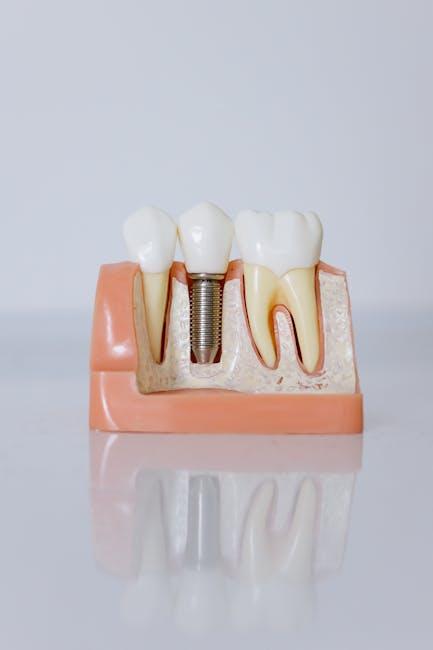
New Delta Dental Report Reveals Gap in Understanding the Link Between Oral Health and Medical Conditions
The latest Delta Dental report has brought to light a significant gap in public awareness regarding the critical connection between oral health and a wide range of medical conditions. Published by Morningstar, this fascinating report underscores a pervasive misunderstanding – one that could impact health outcomes on a large scale.
Introduction: Why Oral Health Matters Beyond the Mouth
When we think about health, oral care is often relegated to the sidelines, seen merely as a concern for cavities, bad breath, or the occasional toothache. However, emerging research and authoritative reports like Delta Dental’s latest findings emphasize that the mouth is far more than just a set of teeth – it’s a gateway to overall wellness. Poor oral health has been linked to serious conditions like heart disease, diabetes, respiratory illnesses, and even adverse pregnancy outcomes.
Yet, despite growing evidence, many people remain unaware of these critical links, a fact that the Delta Dental study vividly reveals.
Key Findings from the Delta Dental Report
The Delta Dental report surveyed thousands of Americans, dental and medical professionals, and health policymakers to understand the comprehension of oral-systemic health connections. Here are some of the vital insights from the study:
- Limited Public Awareness: Over 60% of participants did not know that poor oral health can contribute to heart disease and diabetes complications.
- Healthcare Provider Disconnect: Less than 50% of medical practitioners routinely assess patients’ oral health during general check-ups.
- Insurance Barriers: Confusion about dental insurance coverage contributes to delayed or avoided dental visits.
- Importance of Communication: Coordinated care between dentists and medical providers is inadequate in many healthcare settings.
Understanding the Link: Oral Health and Medical Conditions
To appreciate the report’s significance, it’s important to clarify the relationship between oral health and systemic medical issues:
| Medical Condition | Oral Health Link | Potential Impact |
|---|---|---|
| Cardiovascular Disease | Inflammation from gum disease can exacerbate artery plaque buildup. | Increased risk of heart attack and stroke. |
| Diabetes | Poor glycemic control worsens gum infections; gum disease hinders blood sugar management. | Higher blood sugar levels leading to complications. |
| Pregnancy Complications | Gum disease linked to premature birth and low birth weight. | Health risks for both mother and baby. |
| Respiratory Infections | Bacteria from infected gums can be inhaled into lungs. | Increased risk of pneumonia and other infections. |
Why Does the Gap in Understanding Exist?
The report sheds light on several contributing factors behind this pervasive knowledge gap:
- Lack of Public Education: Oral-systemic health isn’t adequately addressed in health education campaigns.
- Separation of Medical and Dental Care: For many, dental care is siloed from general healthcare, creating fragmented treatment approaches.
- Insurance and Cost Barriers: Dental coverage can be limited or confusing, leading to deferred care.
- Limited Cross-disciplinary Training: Medical and dental providers often do not receive sufficient training to understand and communicate these links effectively.
Benefits of Bridging the Oral Health Knowledge Gap
Recognizing and acting upon the connection between oral health and medical conditions can lead to numerous benefits:
- Improved Disease Prevention: Early detection of gum disease can reduce risks for heart disease, diabetes, and more.
- Enhanced Healthcare Coordination: Integrated care results in comprehensive patient management.
- Cost Savings: Preventative oral care reduces costly hospitalizations related to systemic complications.
- Better Quality of Life: Maintaining oral health supports nutrition, speech, and emotional well-being.
Practical Tips to Improve Oral and Overall Health Awareness
Here are actionable ways individuals and healthcare providers can address this information gap and promote better health:
For Individuals
- Schedule regular dental check-ups, at least twice a year.
- Practice thorough oral hygiene: brushing twice daily, flossing daily.
- Inform your medical provider about your oral health status and any dental issues.
- Educate yourself about how oral health impacts overall wellness.
For Healthcare Providers
- Incorporate basic oral health screenings in routine medical exams.
- Encourage collaboration between dentists and physicians for shared patient care.
- Provide patient education materials highlighting oral-systemic connections.
- Advocate for improved insurance coverage that includes preventive dental care.
Case Study: How Addressing Oral Health Transformed a Patient’s Diabetes Management
One compelling case from the Delta Dental report illustrates the power of recognizing oral and systemic health links:
Ms. Johnson, a 52-year-old with Type 2 diabetes, struggled to maintain her blood sugar levels despite medication. Upon dental examination, chronic gum disease was detected, which was inflaming her systemic condition. After receiving targeted periodontal treatment and improving her oral hygiene routine under the joint supervision of her dentist and endocrinologist, Ms. Johnson’s glycemic control improved significantly within three months. This integrated approach reduced the risk of diabetes complications and highlighted the necessity of viewing oral health as a critical component of holistic care.
Conclusion: Closing the Oral-Health Awareness Gap is Essential for Better Healthcare
The new Delta Dental report reveals a clear and urgent call to action—to bridge the chasm between oral health and medical health knowledge. By raising public awareness, fostering collaboration between healthcare providers, and making dental care accessible and integral to general health, we can improve outcomes for millions.
Remember, healthy teeth and gums are not just about a bright smile; they are fundamental pieces of the puzzle in preventing chronic diseases and supporting lifelong well-being. Embrace oral health as a vital part of your overall health journey today.


